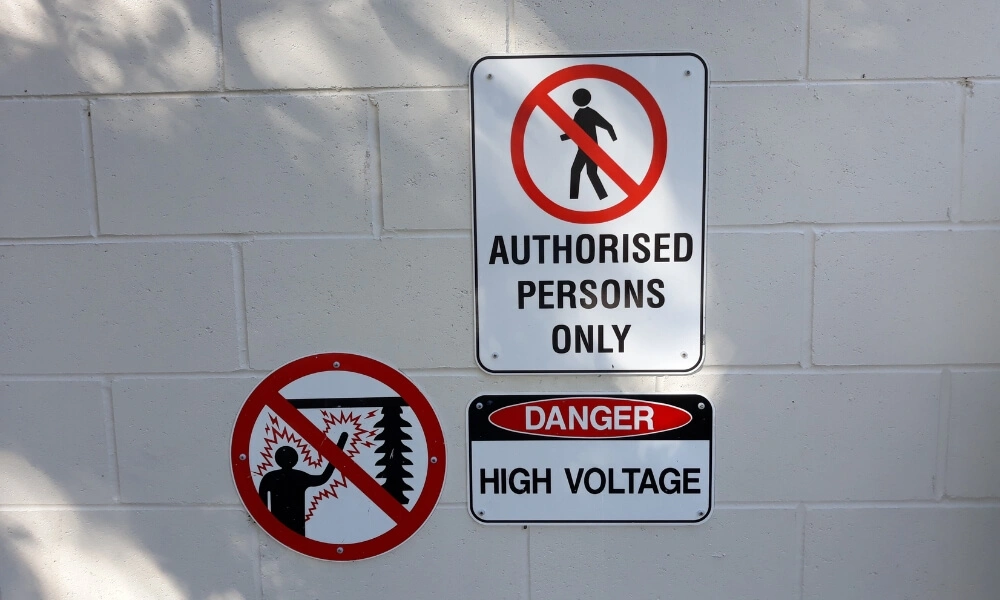Understanding roles and the scope of authority is paramount in the intricate web of corporate hierarchy and responsibility. One such aspect that often creates confusion is the difference between a Designated Person and an Authorized Person. Though they may sound synonymous to the untrained ear, these terms have distinct implications, responsibilities, and legal bearings. This blog post will dissect the nuances that set these two roles apart and explore their significance in an organizational setting.
Whether you’re an entrepreneur setting up a new business, an executive looking to understand the legal responsibilities of your team members, or an employee trying to comprehend your position’s scope, this post is for you. With a blend of definitions, legalities, and practical applications, we will navigate the responsibilities and constraints of Designated and Authorized Persons.

Designated Person
A Designated Person is an individual specifically assigned or approved by the employer to perform a certain type of duty or be at a specific location at a worksite. The designation implies that the person has been chosen to undertake tasks or responsibilities requiring specific knowledge or skills.
In construction standards and regulations, as mentioned in the 29 CFR Part 1926, Section 1926.32, the term “Designated Person” describes someone tasked with enforcing certain safety protocols or programs on the job site. For example, in the National Electrical Code (NFPA 70, section 590.6(b)), a Designated Person is required to ensure continued enforcement of the assured equipment grounding conductor program. Without a Designated Person, this program cannot be used.
The responsibilities of a Designated Person can be limited to specific areas, usually revolving around safety compliance and regulations. They are entrusted with the responsibility to oversee and manage a specific part of a program or process, especially in situations that require attention to safety standards.
The authority of a Designated Person generally comes from their specific role within the company rather than their hierarchical position. They do not have the authority to make wide-ranging decisions on behalf of the company, unlike an Authorized Person who has been given the power to make decisions and often has access to confidential information.
In summary, a Designated Person is assigned specific duties, usually related to safety or compliance, and is expected to have the knowledge, skill, and training necessary to perform those duties effectively. Their role is typically more focused than an Authorized Person, who usually has broader organizational authority.

Authorised Person
An Authorized Person is an individual who has been formally granted the authority by a company or organization to perform specific actions or make decisions on its behalf. This authority often includes access to confidential information, resources, and the ability to enter into agreements or contracts.
In legal and corporate settings, the term “Authorized Person” often implies that the individual has been given formal, documented authority, typically through an appointment by senior management or the board of directors. This authority might include signing documents, making financial transactions, entering into contracts, and making decisions that could significantly impact the company or organization.
In the context of safety regulations and standards, such as mining or construction, an Authorized Person can also refer to someone authorized to carry out specific safety-related duties or tasks. This could include inspecting equipment, overseeing safety protocols, or being responsible for the well-being of other employees in certain areas or conditions.
Here are some of the common characteristics and responsibilities of an Authorized Person:
- Decision Making: Authorized Persons usually have the authority to make significant decisions on behalf of the company or organization.
- Access to Information: They often have access to sensitive or confidential information unavailable to other employees or individuals.
- Legal Representation: They may represent the company legally and have the authority to enter into contracts or agreements binding on the company.
- Responsibility and Liability: They might be held accountable for their actions and decisions, especially if they have financial or legal ramifications for the organization.
- Documentation of Authority: Their authority is usually documented, and the scope of their authority is defined in writing.
- Seniority: Often, Authorized Persons hold senior positions within the company or are individuals who have been specifically trusted with critical responsibilities.
It’s important to note that the scope of authority and responsibilities of an Authorized Person can vary widely depending on the context, company policies, and legal regulations in place.

Key Differences Between Designated Person & Authorised Person
While both Designated and Authorized Persons are assigned or approved for certain roles or tasks by an employer or organization, the two have key differences. Here are the main distinctions:
| Aspect | Designated Person | Authorized Person |
|---|---|---|
| Scope of Authority | Narrow, focused on specific tasks or areas | Broad, can make significant decisions for the company |
| Decision Making | Limited decision-making authority | Extensive decision-making authority |
| Access to Information | Limited to information needed for specific tasks | May have access to confidential company information |
| Position in Company | Can be any position, authority is task-specific | Often in senior positions |
| Legal and Financial Liability | Typically not legally or financially liable for company decisions | May be legally and financially liable for decisions on behalf of the company |
| Representation of Company | Does not represent the company in official or legal capacities | May represent the company in legal, contractual, or official capacities |
| Appointment | Appointed by senior management or supervisors | Often appointed by the board of directors or high-level management |
| Role in Safety and Compliance | Often plays a role in safety and compliance, especially in construction and similar industries | May or may not have responsibilities related to safety and compliance |
| Documentation and Formality | Designation may be less formal | Authority is formally documented and communicated |
| Duration of Authority | May be temporary or project-specific | Often lasts as long as the individual holds a particular position |

- Scope of Authority: Designated Persons usually have a more narrow and specific scope of authority focused on particular tasks or areas, whereas Authorized Persons often have broader authority to make significant decisions on behalf of the organization.
- Decision Making: Authorized Persons are typically empowered to make decisions that can impact the company as a whole, including entering into contracts. Designated Persons usually do not have this level of decision-making authority.
- Access to Information: Authorized Persons often have access to confidential or sensitive information within the company, while Designated Persons usually do not have access to such information unless it is directly related to their designated duties.
- Position within the Company: Authorized Persons are often in senior positions or roles that inherently carry authority, whereas Designated Persons may be in any position and are given authority solely for specific tasks or areas.
- Legal and Financial Liability: Authorized Persons might be legally and financially liable for the decisions and actions they take on behalf of the company, whereas Designated Persons typically do not have this level of liability.
- Representation of the Company: Authorized Persons may represent the company in legal, contractual, or official capacities, whereas Designated Persons are not usually entrusted with this responsibility.
- Appointment: Authorized Persons are often appointed by the board of directors or the highest levels of management, while Designated Persons are usually appointed by senior management or supervisors for specific tasks.
- Role in Safety and Compliance: Designated Persons often play a role in safety and compliance, particularly in industries like construction, where they may be responsible for enforcing certain standards or protocols. Authorized Persons may or may not have responsibilities related to safety and compliance.
- Documentation and Formality: The authority of an Authorized Person is often formally documented and communicated throughout the organization, while the designation of a Designated Person may be less formal.
- Duration of Authority: The authority of an Authorized Person often lasts as long as they hold a particular position, whereas a Designated Person’s authority might be temporary or project-specific.
In summary, an Authorized Person generally holds more extensive and broader authority within the organization, whereas a Designated Person is assigned specific, often narrower tasks or responsibilities frequently related to safety and compliance.
Conclusion
In conclusion, understanding the distinction between a Designated Person and an Authorized Person is crucial for organizations to ensure that responsibilities are allocated appropriately and legal compliance is maintained. While a Designated Person is assigned specific roles or tasks, usually focusing on safety and compliance, an Authorized Person holds broader authority, often encompassing decision-making capabilities that can have legal and financial ramifications for the company. Awareness of these differences allows for more efficient and effective management and ensures that both roles can operate within their defined scope to contribute positively to the organization’s success.

